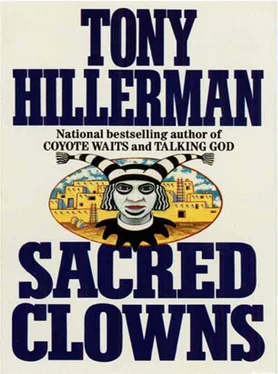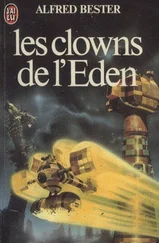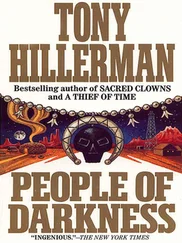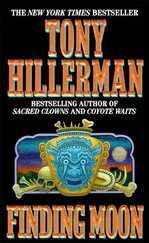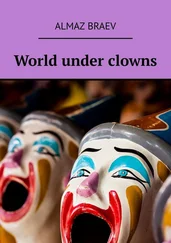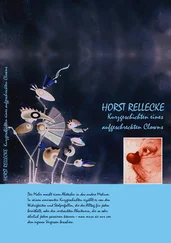On the fourth ring, her answering machine kicked in – her pleasant voice telling him to leave a message after the tone. Well, maybe it was better this way.
“Louisa,” he said. “This is Joe. Bad news. I’m sort of suspected of being involved in that Councilman Jimmy Chester telephone tapping thing. The one in the paper where it sounded like Chester was soliciting a bribe. I’m under orders to stay here until it’s cleared up. If it can be cleared up fast I could still make it, but that’s about one chance in a million. So if it doesn’t drag on too long, I’ll try to catch a later flight and join you in Beijing.” But there was no real chance of that, and she would know it.
He paused, searching for something to say, knowing that he wouldn’t be taking a later flight. Things didn’t work out that way with him. “Louisa. I feel terrible about this. I’m really going to miss you.” He paused again. To his surprise, he found himself thinking that he might say a lot more than that. He might say I think I love you , or maybe even I love you . But then the answering machine clicked off.
LEAPHORN HUNG UP the telephone and looked at his watch, unusually conscious of time. He might be finished with the Navajo Tribal Police. If the person who had set him up had planned it carefully, Leaphorn might never really be cleared of doubts. In that event he would resign, and if he did, he wanted no loose ends left behind him. He had a possible hook now on the Eric Dorsey. homicide. At least he thought he did. He wanted to know.
For Captain Dodge, he typed one of the detailed memos for which he was noted. In three precise, single-spaced pages he provided a chronology covering every step that might apply, answering every question he thought Dodge would be asking, suggesting people Dodge might want to contact. Finished, he read it through carefully, thought a moment, and stuck the final page back into the typewriter.
I will stay out of this office, of course, until this matter is resolved, but I will check in with you periodically in the event I am needed.
He signed it, stuck the sheets into an envelope, dropped his office key into it, sealed it, and addressed it to Captain Dodge. On his way out, he handed it to Virginia.
Virginia looked uncharacteristically solemn. She glanced at the envelope, and up at Leaphorn, raising her eyebrows in an unspoken question.
“I’m going to tell you something,” he said. “And then I am going to ask you for a favor.”
“Something bad has happened, hasn’t it,” she said.
“Bad enough,” Leaphorn said. “By tomorrow morning, the word is going to get out that I’ve been suspended. What I want-”
Virginia’s expression stopped him. It went from shock, to sorrow, to anger, and the intensity of it surprised him. Virginia is my friend , he thought. Really a friend . Why hadn’t he appreciated that before? Why was he so blind about such important things?
“Suspended,” she said.
“It has to do with that Councilman Chester telephone call. The one that was broadcast.”
“That son-of-a-bitch,” she said. “I thought it would be him.”
“We’ll get it worked out,” Leaphorn said. “But until we do I could use your help.”
“Anything,” Virginia said.
“About tomorrow, I’d guess, you’re going to be hearing rumors about this. Captain Dodge is going to have to be asking around, questioning people, so it won’t be hard to figure out that an investigation is going on and that I’m the target of it. Word will be leaking out. What would help me a lot would be if you could sort of slow it down. When people call to ask, could you laugh it off? Could you maybe make them think it’s just another rumor?”
“I’ll tell ’em it’s a damned lie,” Virginia said. “I’ll tell ’em nobody would be that crazy. Not even this bunch.” She held her hand out to him. It took him a second to understand the gesture, then he took it, and felt his hand being squeezed.
“What about the trip?” she said. “To China. You were going tomorrow.”
Leaphorn shrugged.
“Those bastards,” she said. “Don’t they have any sense?”
He patted her on the shoulder. “Ah, come on, Virginia. The chiefs just doing his job.”
Leaphorn called the Crownpoint office from home. Lieutenant Toddy had left for home but the dispatcher said he would get the message to him.
“It’s ‘Meet Lieutenant Leaphorn at Saint Bonaventure Mission at ten tomorrow morning’? Is that right? And bring the key to Dorsey’s office and his Dorsey file.”
“Right,” Leaphorn said. He tried Louisa’s Flagstaff number again, aroused the answering machine, and could think of nothing to add to what he’d already told it. He sat in the gathering darkness with no motivation to switch on the light, or the television, or to begin unpacking his bags. He thought about the tape and how it might have come to be. Roger Applebee, the lobbyist for Nature First, was the only one he could think of whose cause would be helped.
He called the Navajo Nation Inn. Yes, Roger Applebee was registered. He was in room 127. No, Roger Applebee didn’t answer his telephone. Leaphorn picked up his car keys and walked out to the driveway. He’d go to the Navajo Inn for a hamburger or something. Maybe Applebee would be having dinner.
Most of the parking spaces along the two-story wing that held room 127 were empty, but at Applebee’s door a dark blue Range Rover was parked. Leaphorn stopped his car behind it. A decal on the back displayed a picture of earth as NASA’s big blue marble. The legend read, IT’S THE ONLY HOME WE HAVE. Probably Applebee’s car.
Leaphorn moved his car forward, planning to park and knock at the door. Then he saw a man – a big man who looked vaguely familiar – turn the corner and come hurrying down the walk toward him. Leaphorn let his car roll, parked it a half-dozen spaces down.
The big man stopped at 127 and tried the knob. Then he knocked, knocked again, rattled the knob, turned to inspect the Range Rover briefly, and then pounded on the door.
Leaphorn joined him.
“I’m looking for Mr. Applebee,” Leaphorn said. “Seems like he’s not home.”
The big man looked at Leaphorn, glanced back at the Range Rover. “That’s his car,” he said. “He can’t be far away.”
“Maybe in the dining room,” Leaphorn said. He recognized the man now, but the name eluded him. He was a trader. One of those buyers and sellers of things ancient, odd, or beautiful. One of those who show up at tribal fairs, rug auctions, ceremonials, even postfuneral family gatherings looking for the sort of things for which collectors are willing to pay big money and for which they will offer very little money. With that thought came recognition.
This was Asher Davis, one of the exceptions. Mister Fair Price.
The first time he’d heard the name was at a coffee shop in Tuba City, at least twenty years ago. Captain Largo, young and thin then and a sergeant, telling an old woman not to sell her grandfather’s concha belt until she could ask Asher Davis what it was worth.
“I checked the dining room,” Davis said. He banged on the door again, half-heartedly this time. It was less a summons than an expression of frustrated anger – a gesture devoid of hope. “He’s out here lobbying the Tribal Council about something,” Davis said.
“Maybe he’s off somewhere with one of them. You a friend of his?”
Davis really looked at Leaphorn for the first time, taking in polished boots, pressed jeans, silver belt buckle, blue shirt, denim jacket, gray felt hat.
“Friend?” he said, and shook his head. “Unfortunately, yes. Old friends.” The tone was sarcastic. Davis made a wry face. “Ever since grade school.” Suddenly, his face lit with recognition. “Hey. Didn’t you used to be with the Navajo police? Years ago? Is your name Leaphorn?”
Читать дальше
